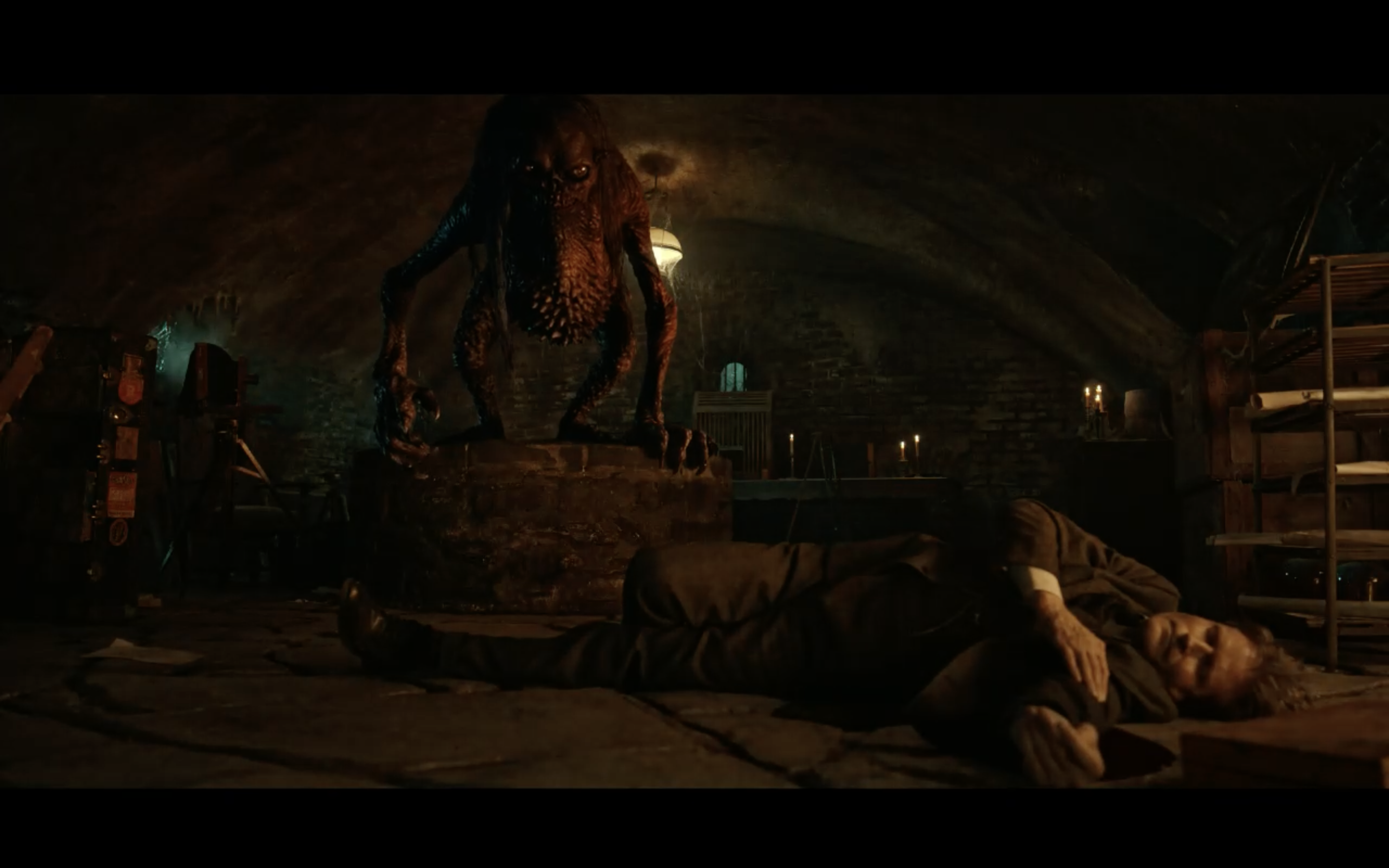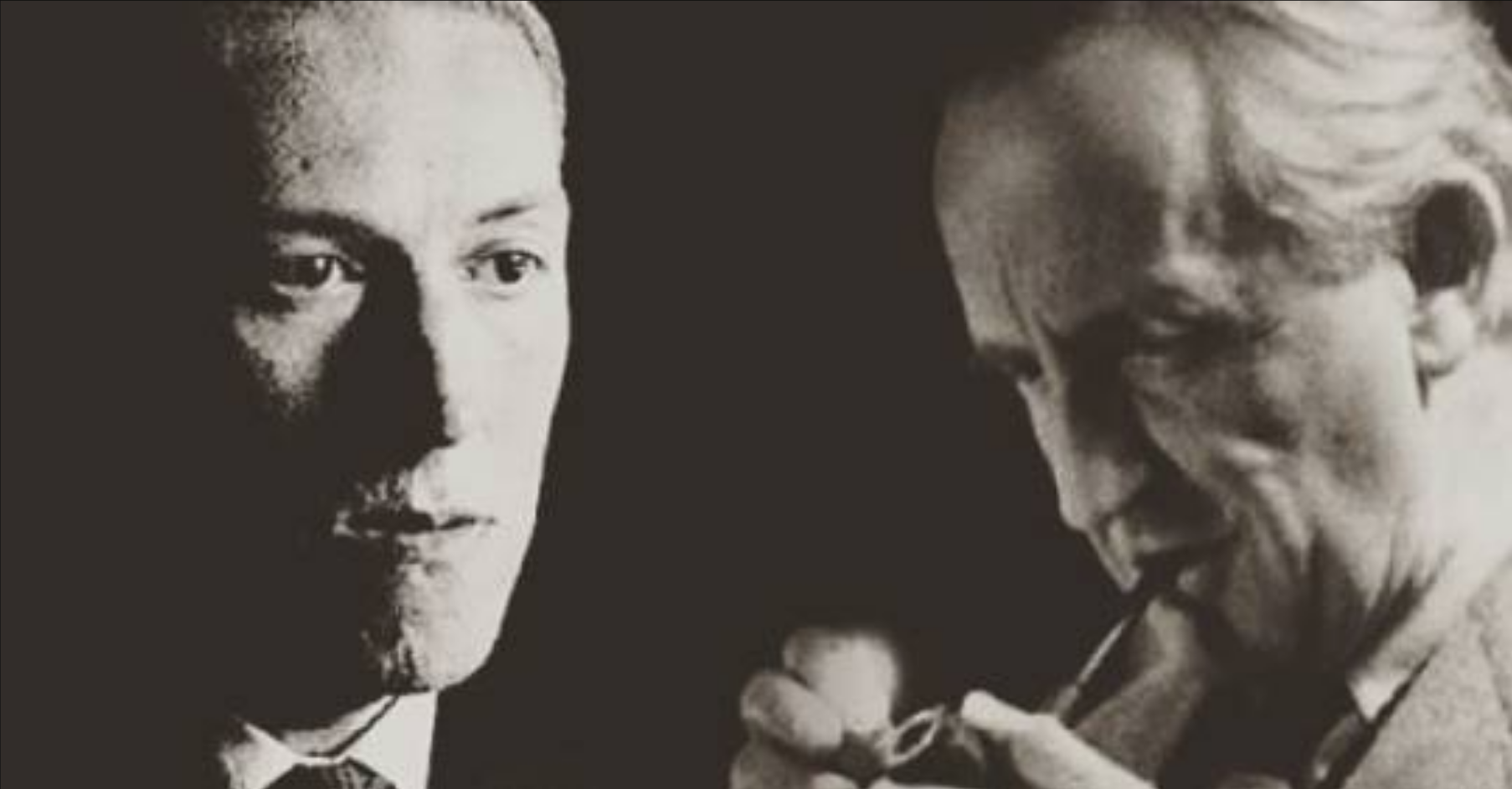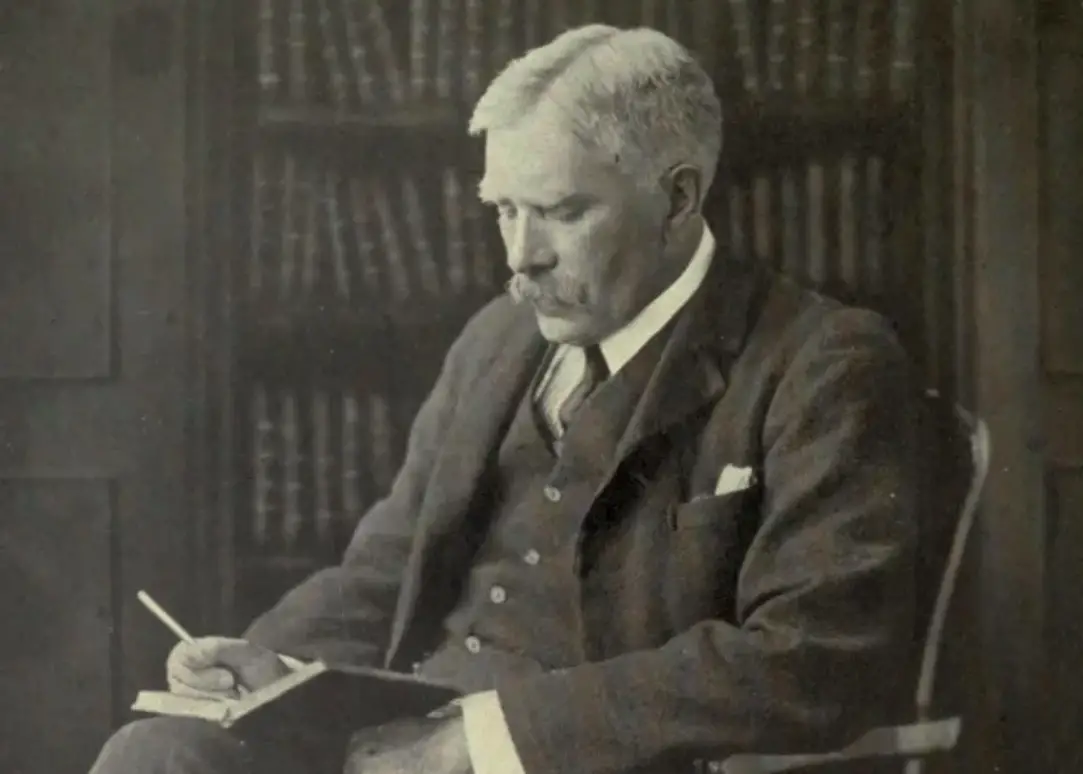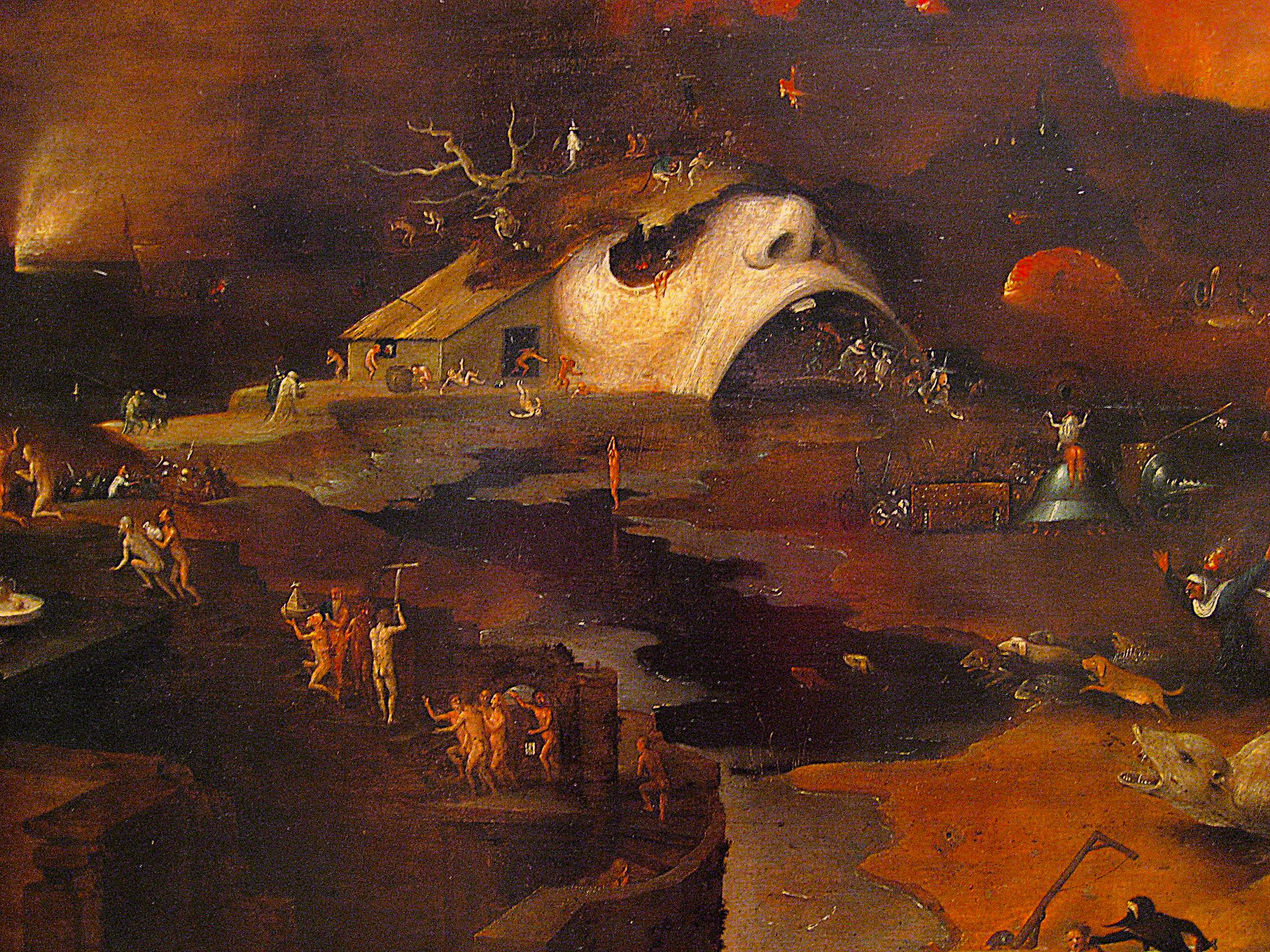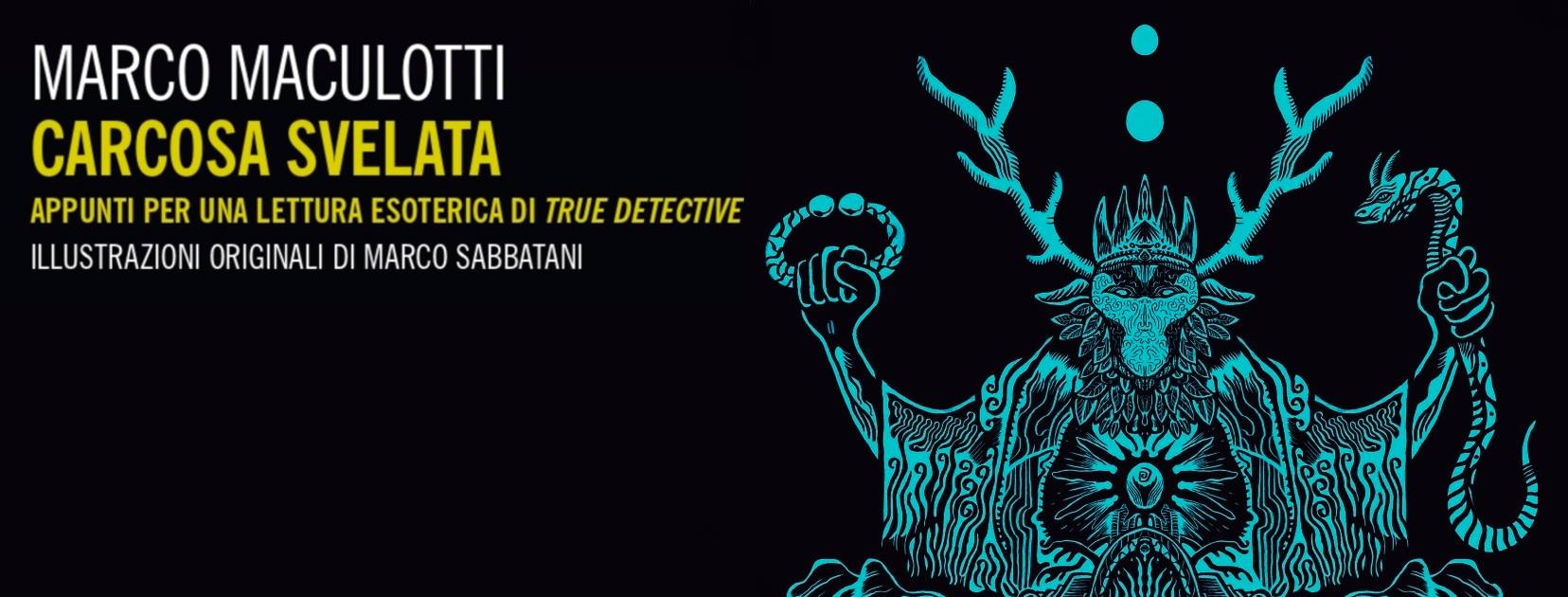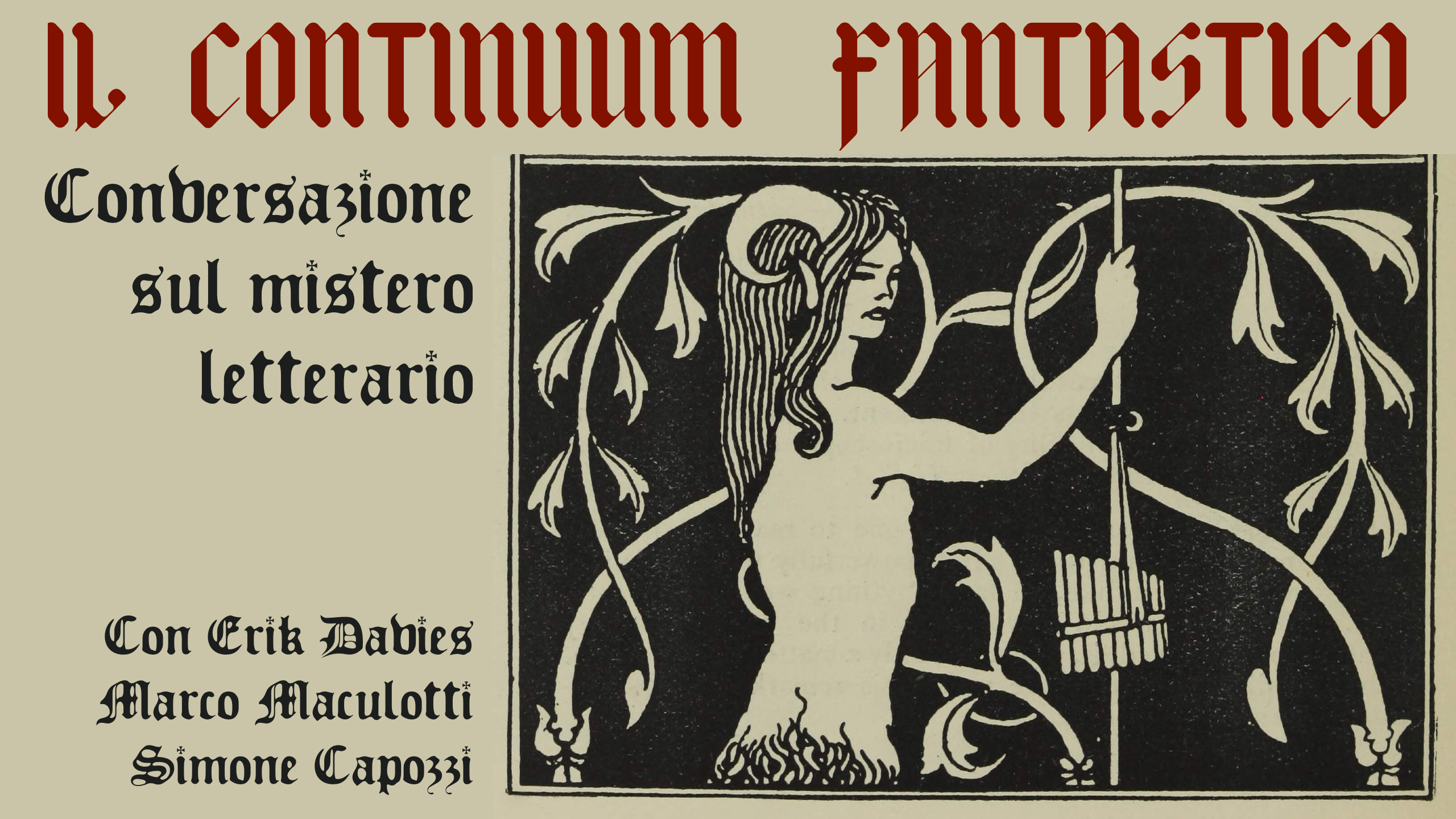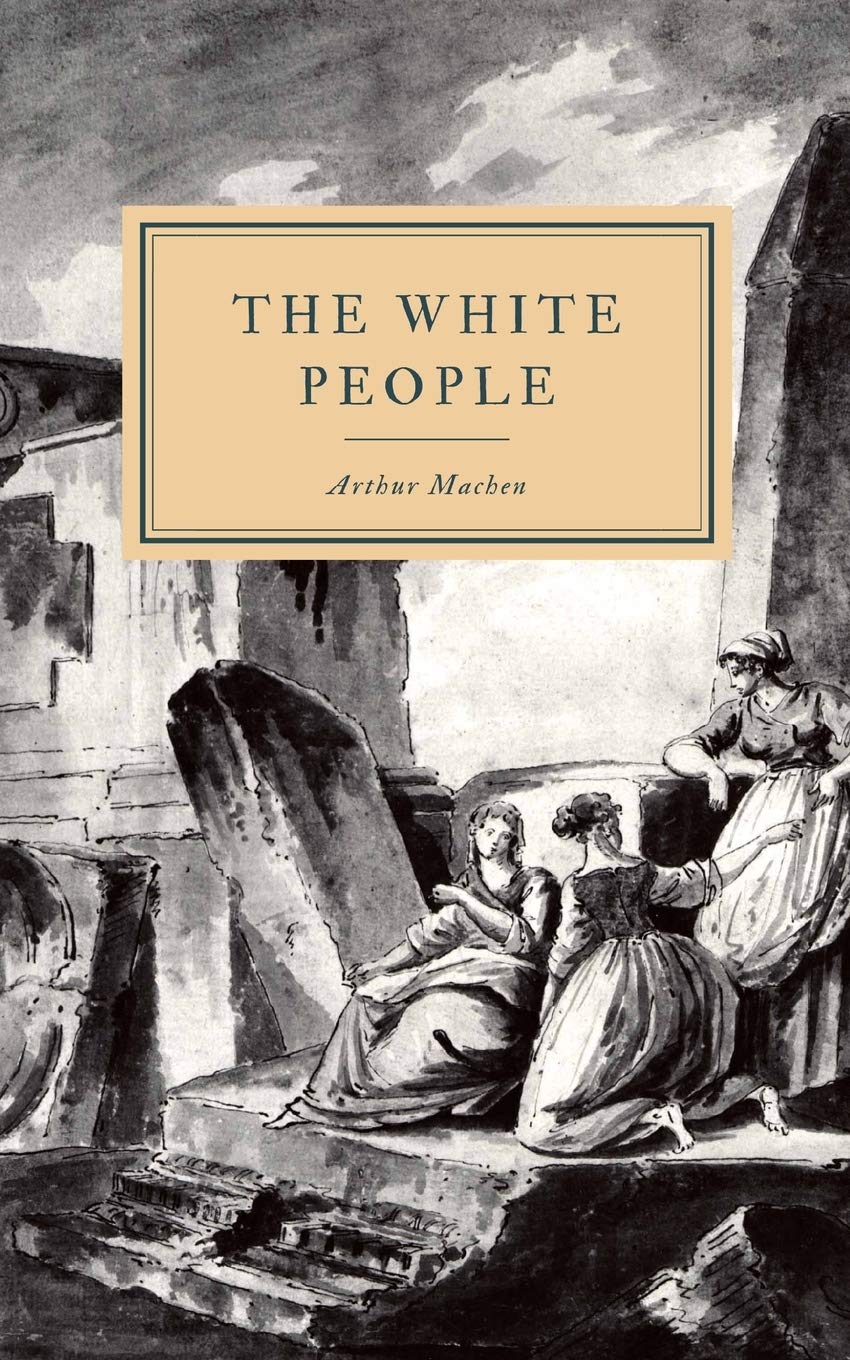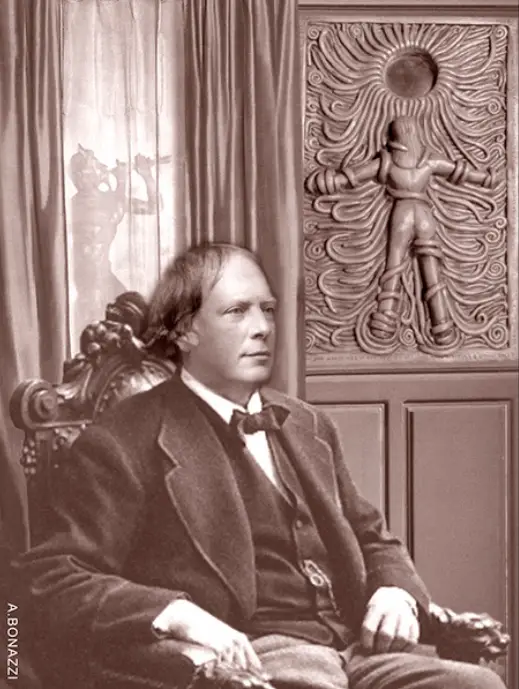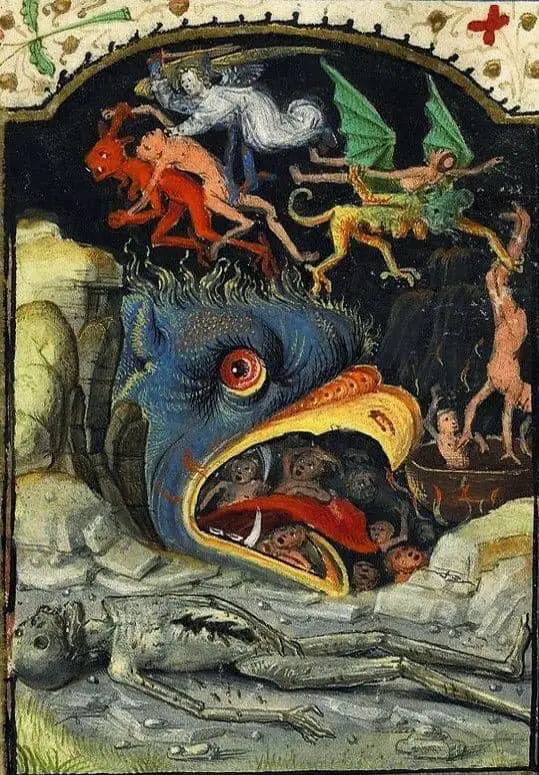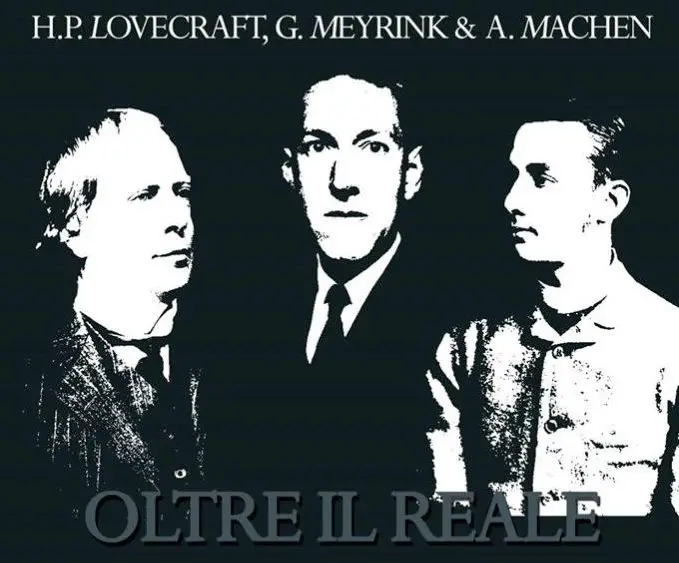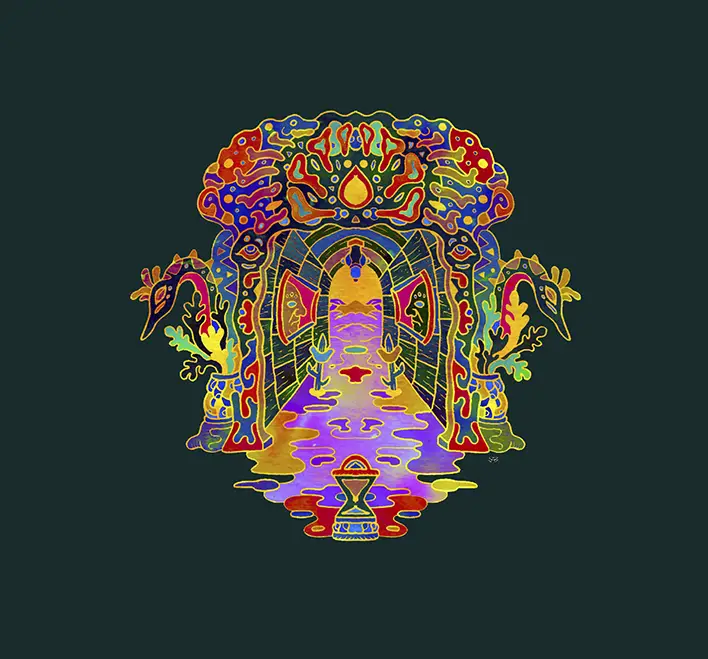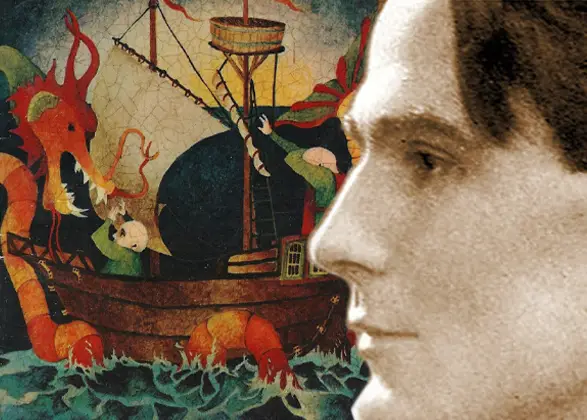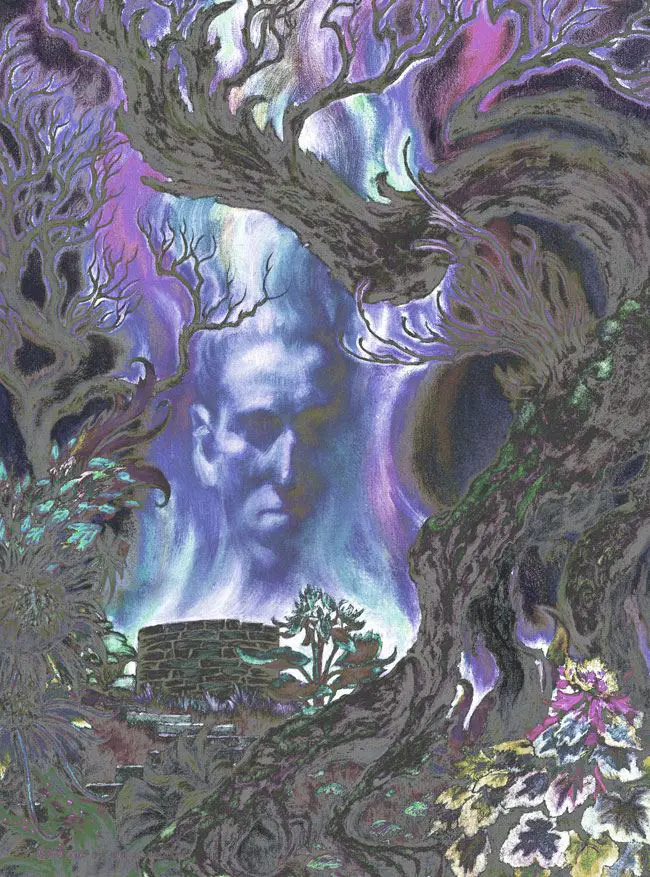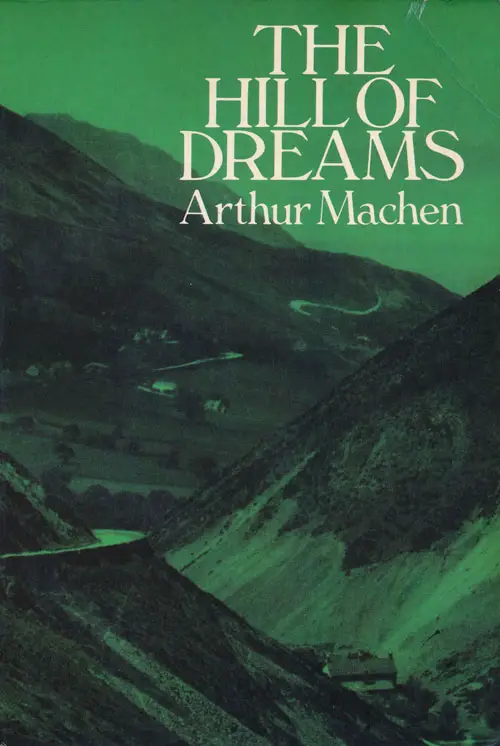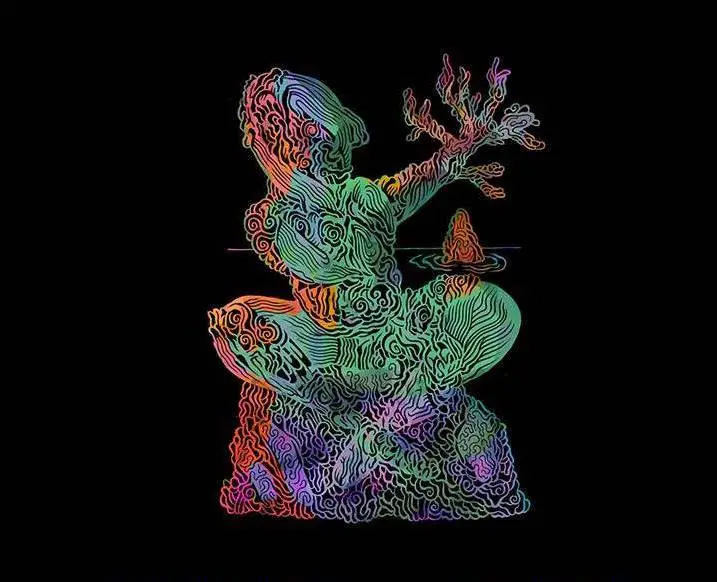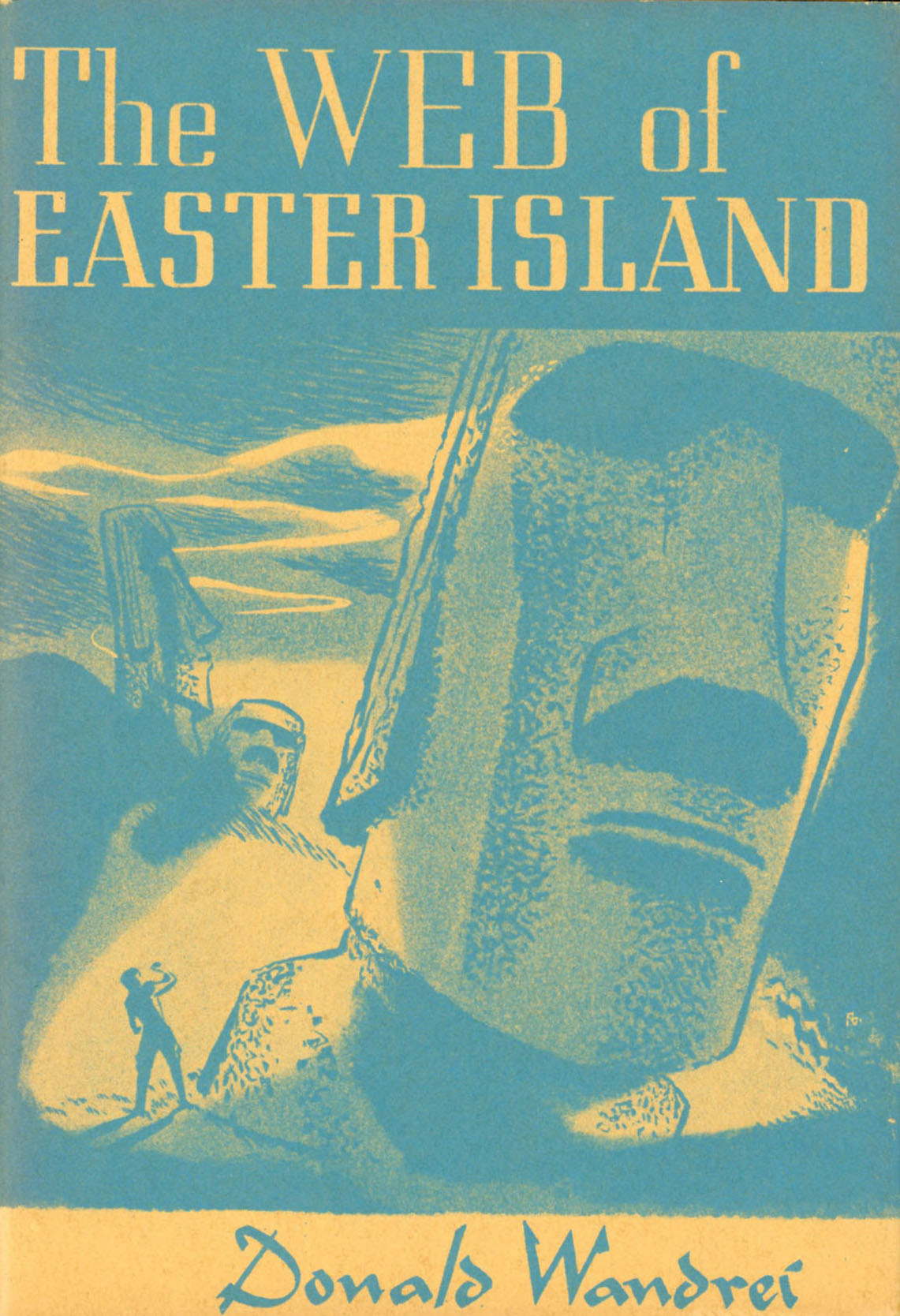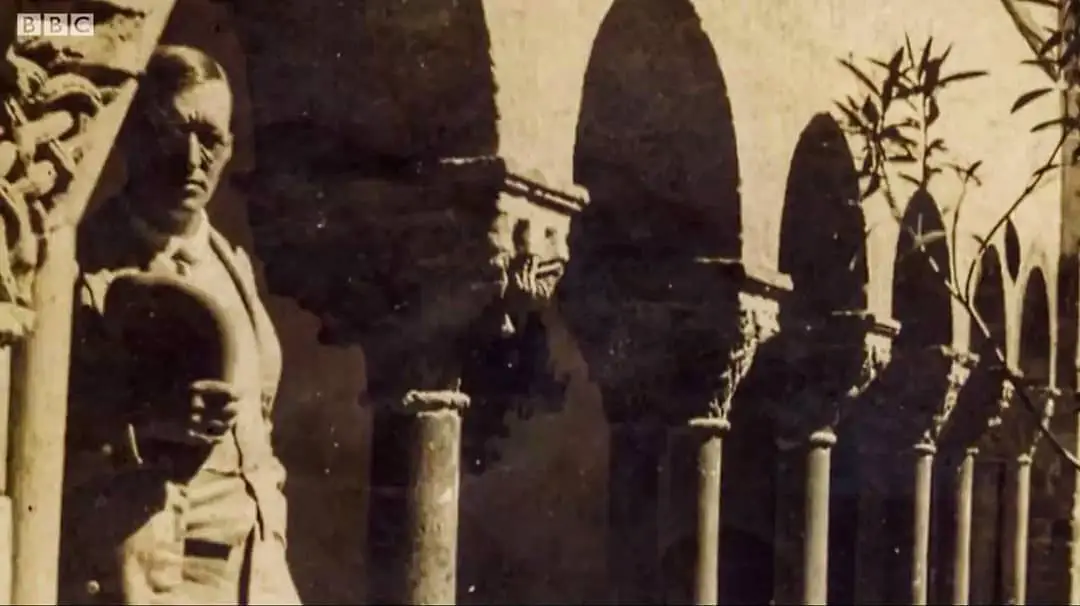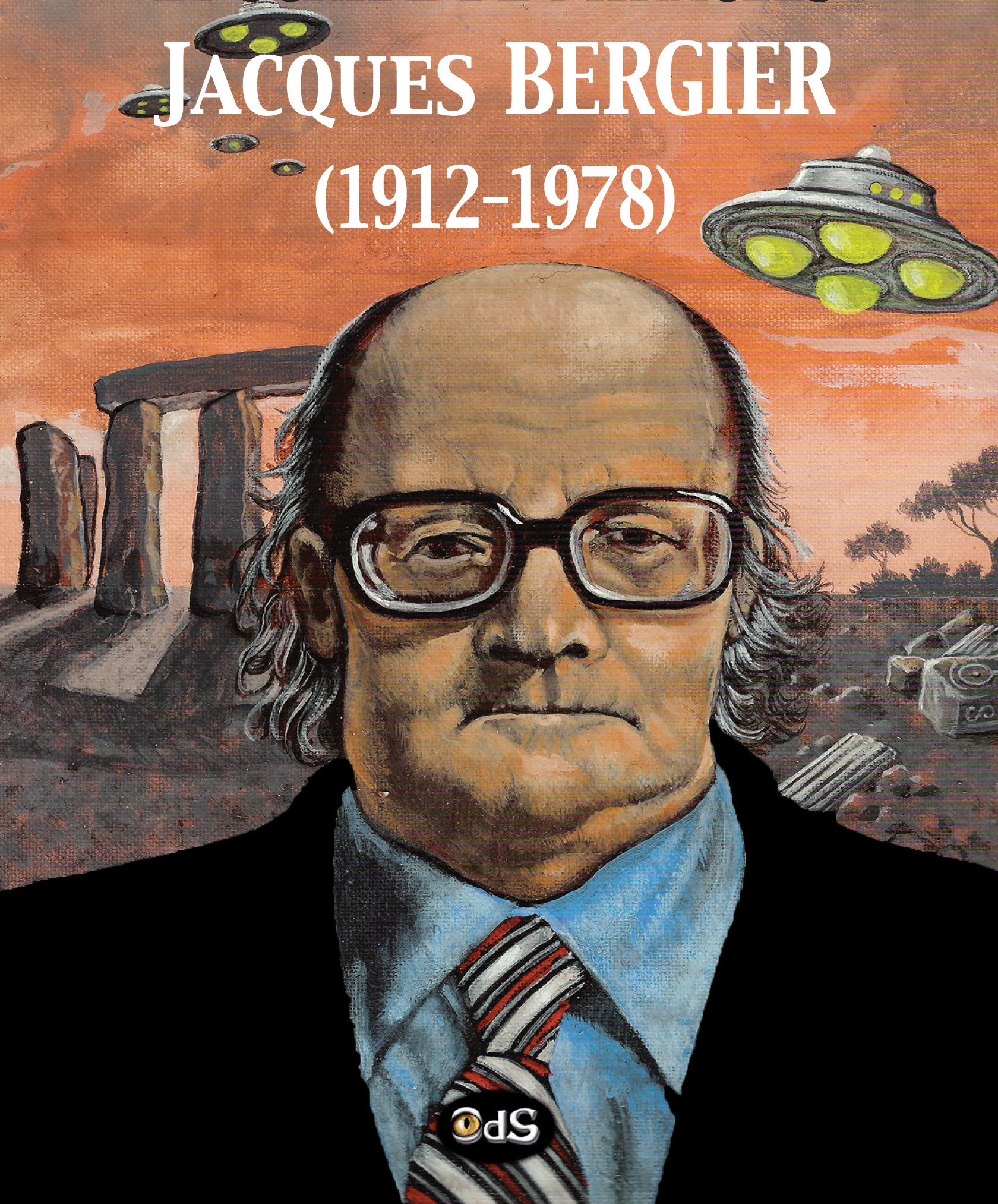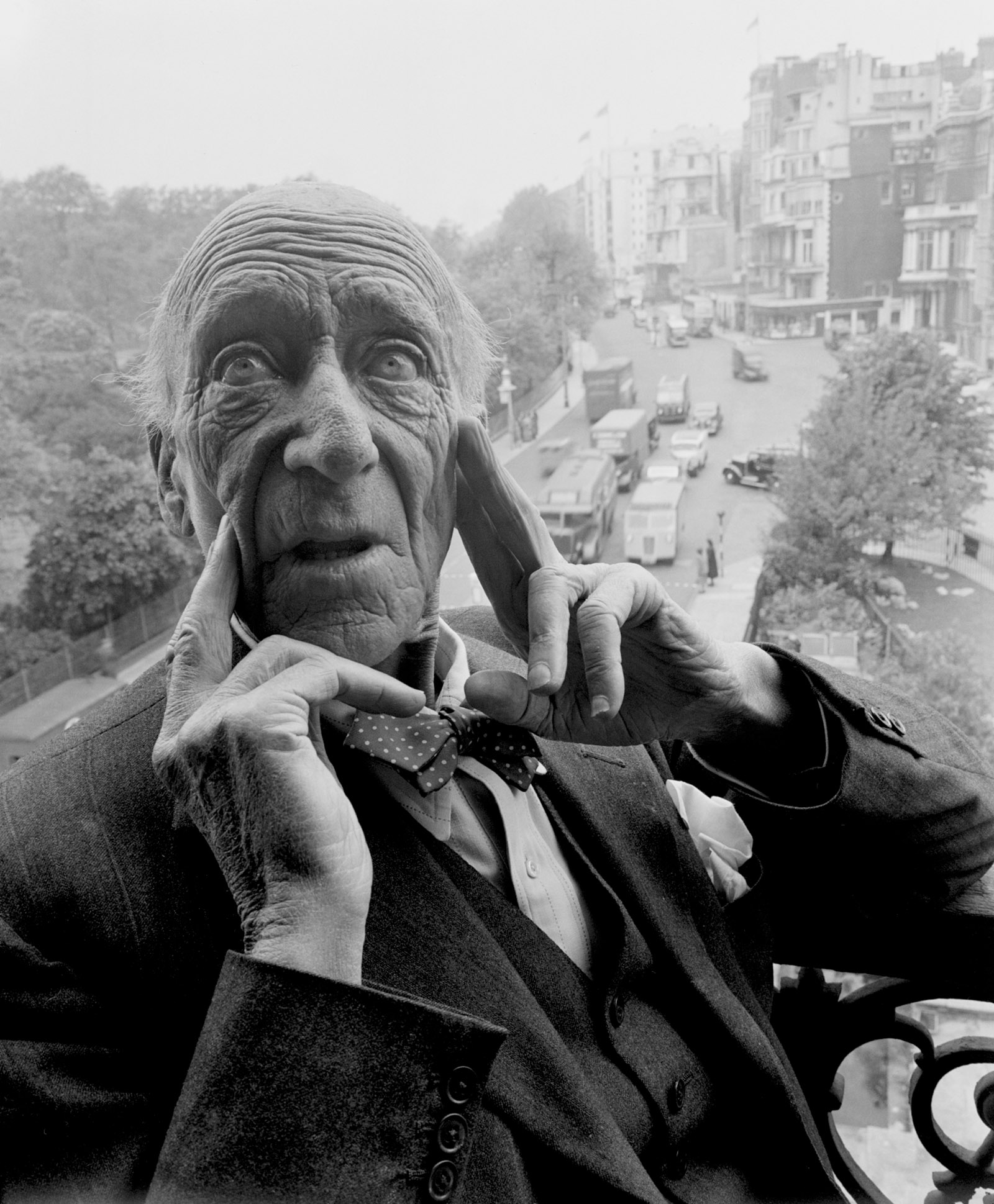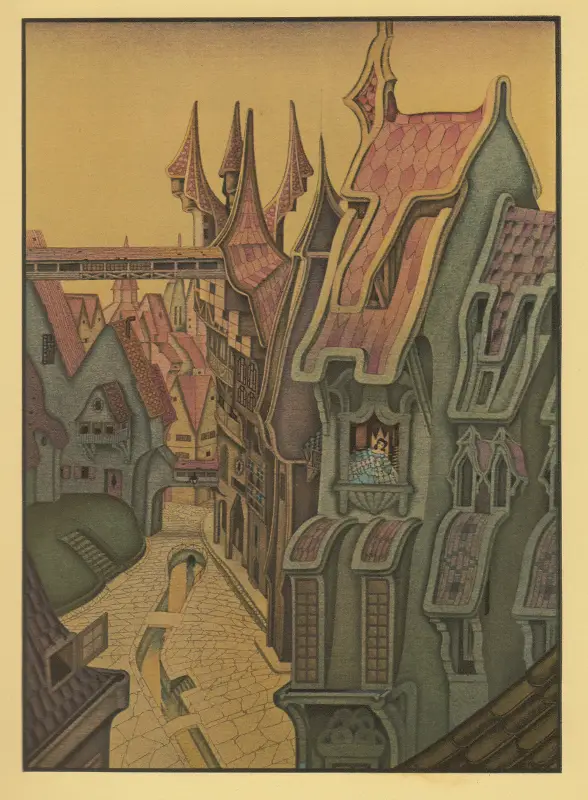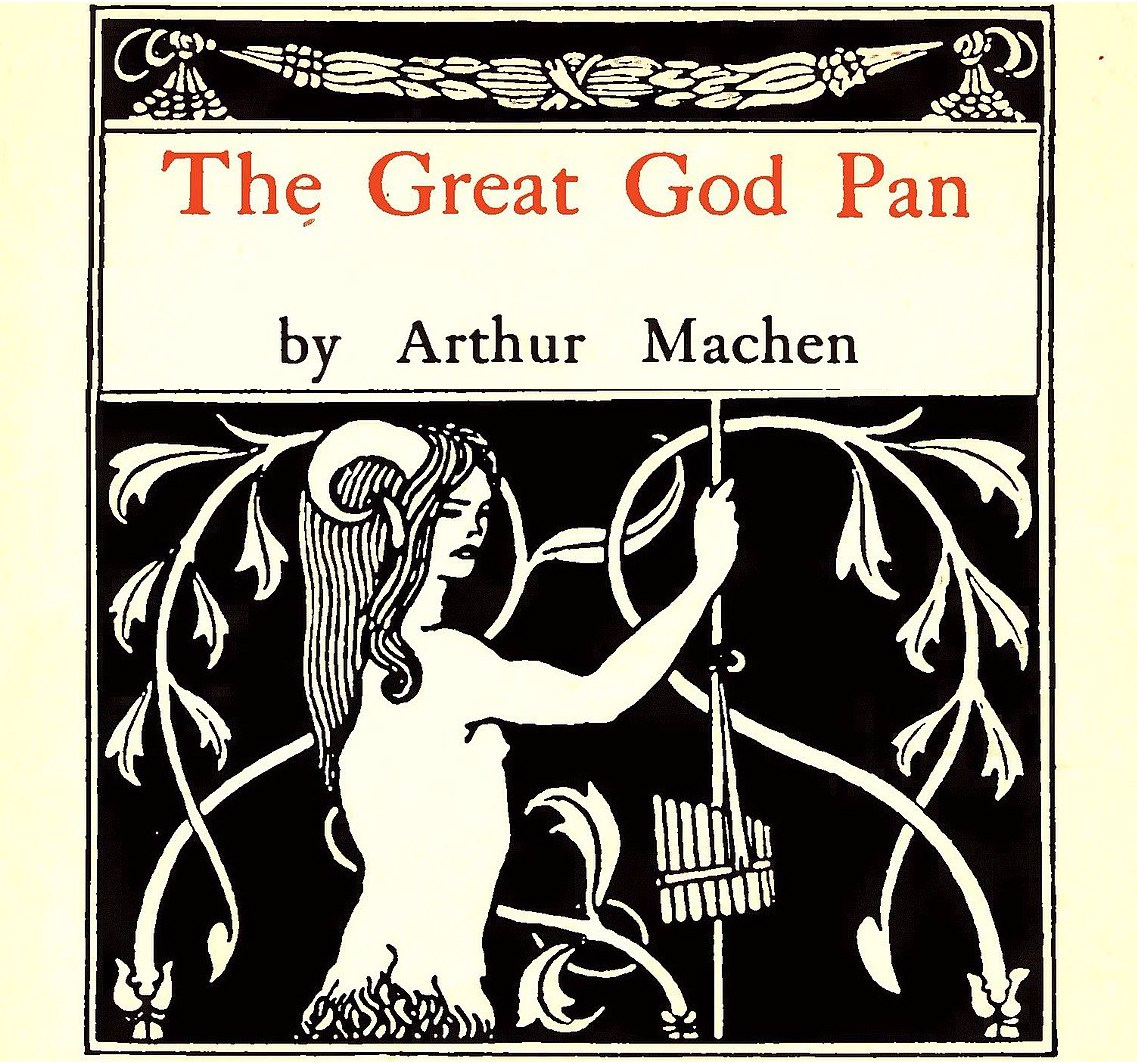Tag: Arthur Machen
HP Lovecraft & JRR Tolkien: world creators in the century of irrationalism
Howard Phillips Lovecraft and John Ronald Reuel Tolkien are both sons and active protagonists of the XNUMXth century. It is possible to read their work and activities as an expression of the aspirations, emotional needs, but also of the fears and tensions of the man of the twentieth century, as well as establish, rightly, connections between them and the movements of twentieth-century irrationalism which, on several levels , characterize the escape from the reality of the last century: from pseudoscience to anthroposophy, from esotericism to the revival of the myths of civilizations lost and submerged by the Sea, in the times of Atlantis and Lemuria.
The diabolical conferences of Arthur Christopher Benson
Dagon Press recently published in Italian - with the title "The closed window" (translation by Bernardo Cicchetti) - the supernatural tales of Arthur Christopher Benson, along with Montague Rhodes James one of the most significant "ghost-writers" English of the early twentieth century, as well as comparable in suggestions and themes to writers roughly contemporary to him and equally "esoteric" such as Arthur Machen, HP Lovecraft and Algernon Blackwood.
HP Lovecraft, the New Babel and the witch hunt 2.0
The controversy raised to the Hugo Awards 2020 on the literary and "ideological" legacy of HP Lovecraft has reopened the question, which exploded ai World Fantasy Awards 2011, of the alleged racism of the Providence Dreamer, which would make him a problematic author for some. But how much did HPL's "racialist" beliefs really influence the genesis of his work, and especially the drafting of The Horror at Red Hook, your most controversial story, a manifesto of the revulsion felt towards the city of New York?
In the dark meanders of Carcosa
Il new essay by Marco Maculotti, published by Mimesis, allows you to cross the threshold of the lost city, to orient yourself among the symbols and references hidden behind the first season of “True Detective”.
Videoconference: "The fantastic continuum: a conversation on the literary mystery"
Video of the conference held tonight with Mens ex Machina and Psy * Co * Re with the participation of Erik Davies.
Arthur Machen: Witchcraft & Holiness
On December 15, 1947, Arthur Machen, one of the most important authors of British fantastic literature, left our world. In memory of him, we give a rereading to one of his most philosophical extracts, the prologue of the story The White People, written in the 1904.
Arthur Machen and the panic charm of the uncanny
The new special issue of zothique, magazine of fantastic and "weird" literature published by Dagon Press, in its over 230 pages allows us to retrace the life and work of Arthur Machen, a Welsh writer who between the end of the XNUMXth century and the beginning of the XNUMXth was able to look beyond the "veil of reality" and reveal the essence of "Great God Pan“, Establishing himself as one of the greatest authors of supernatural fiction of his time.
“Beyond the Real”, or of the literary dignity of the Fantastic
Fantastic literature is still barely regarded by too many as paraliterature; "Beyond the Real", the new volume published by GOG edizioni helps us to affirm the opposite, analyzing the work of five of the most important authors of the genre from the end of the XNUMXth century to today: Lovecraft, Machen, Meyrink, Tolkien and Ashton Smith.
"HP Lovecraft, G. Meyrink & A. Machen: Beyond the Real"
AXIS mundi and the Society of Sulfur present:
"HP Lovecraft, G. Meyrink & A. Machen: BEYOND THE REAL"
with Andrea Scarabelli, Marco Maculotti, Roberto Cecchetti
Interview by Mattia Mazzeo
21 May 2020, 21 pm - 30 pm
Videoconference on Facebook
“Beyond the Real”: for a Metaphysics of the Fantastic
That of narration was born as a profoundly sacred practice: in narrating and narrating the world, man continually recreates and re-establishes it, since “he no longer lives in a purely physical universe, but in a symbolic universe. Language, myth, art and religion are part of this universe, they are the threads that make up the symbolic fabric, the tangled web of human experience ". The narration thus soon becomes the key to the innumerable doors of the Mystery, to a relationship between different yet authentically real dimensions.
William Hope Hodgson's Journey at the End of the Night
On April 19, 1918, William Hope Hodgson was hit by a shell on the Belgian front and prematurely left this world. We want to remember it like this, speaking of the new publication of Palindrome types,…
Chronicles of the End: from Machen's “Terror” to Lovecraft's “Color”
On the occasion of the 83rd anniversary of the death of HP Lovecraft, which took place on March 15, 1937, and given the period of stasis we are experiencing, what better occasion to reread one of his most terrifying stories, "The Color came from Space", light the parallels with another apocalyptic novel released more than a century ago that today seems so prophetic, Arthur Machen's “The Terror”?
Terror and Ecstasy: Arthur Machen's "Hill of Dreams"
Arthur Machen was born on March 3, 1863, one of the greatest writers of Fantastic literature of his time and, together with WB Yeats, one of the most important standard bearers of the so-called «Celtic Revival». After having already reviewed on our pages his work before him, "The Great God Pan", We now turn to his third novel," The Hill of Dreams "(1907), perhaps his greatest masterpiece by virtue of the indissoluble union, here as never before, between the two dichotomous aspects of the Sacred in the Gaelic tradition: the terrifying and the ecstatic one.
"Beyond the real"
The dimension of the fantastic has always existed. In ancient times, through the use of myths, sagas, legends and cosmogonies, human beings shaped their beliefs and motivated their actions. Today the fantastic continues to permeate life and the collective unconscious of man, expressing itself with certainly different means but always capable of magnetizing our inner compasses. Lovecraft, Machen, Meyrink, Smith and Tolkien are five paradigmatic authors of this genre, finally presented in all their literary and philosophical dignity in the new essay published by GOG edizioni.
From Stonehenge to Rapa Nui: Donald Wandrei and the return of the Titans
Taking both hands from the "Weird" literature of HP Lovecraft e Arthur Machen and combining the proceeds with the hypotheses of Charles Fort and the theosophical and "Atlantean" doctrines, Wandrei's 1932 novel was able to anticipate if not actually shape most of the cultural currents ascribable to the so-called "alternative reality" of the second part of the twentieth century: from the "magic realism" of Jacques Bergier to the "paleo-astronautics", from the encounter with extraterrestrial civilizations up to some dystopian predictions that today, almost a century later, do not seem science fiction at all.

